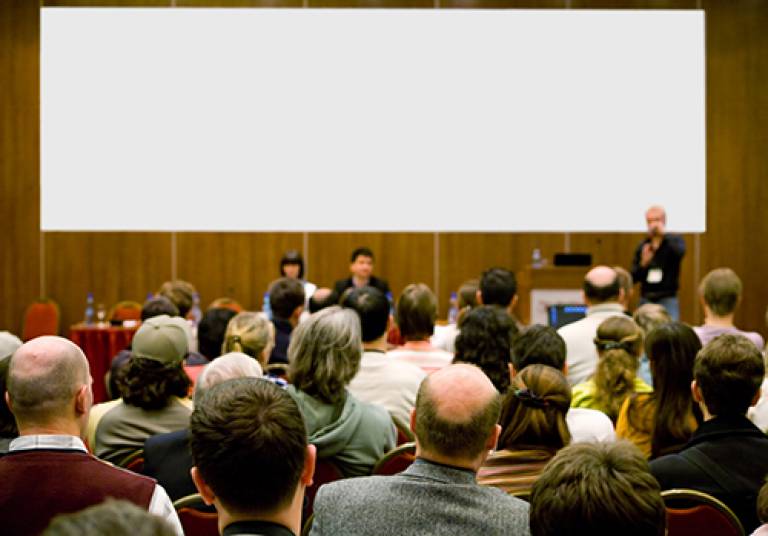Laboratory Challenges and Opportunities in Physics
The research context for Physics and Astronomy undergraduates has changed and with it comes new challenges and opportunities, says Dr Paul Bartlett (UCL Physics and Astronomy).

19 May 2015
For a number of years, limited numbers of undergraduate students in the Physics and Astronomy department have had the opportunity to work as volunteers on projects associated with research activities.
With the introduction of university fees there has been a change in student expectations, with more requests to be a part of research opportunities during the first year.
Consequently, with the relatively new 'Connected Curriculum' initiative now spreading through the university, it is worth considering how this form of research-based education is established and can be embedded in to current Physics and Astronomy programmes.
Research projects involving students from first year undergrad to Postdocs
One such project, 'All Optical Material Characterisation', requires materials to be blasted with a laser and then analysed to determine composition.
First years act as volunteer researchers to develop the chamber to be used for the works and to source the materials.
Postdocs and PhD students train them in the role and Teaching Fellows in the labs act as facilitators to ensure that the first-years are appropriately supported.
Fourth-year researchers then undertake the major data analysis / collaboration and develop the system further.
This experience has proved a major learning curve for the student volunteers involved.
Indeed, the first year students returned as second years and worked together to get a paper published.
A real research environment accessible for all
As well as closing the gap between the teaching laboratories and wider research community, it has shown the real value in enabling students to contribute – with support - in a real research environment.
Many students have the idea of taking part in high-tech research as volunteers but within the current curriculum this may not be possible.
However, Lab Co-ordinators have been identified as a good conduit for putting students and staff together as students can be nervous about approaching staff directly.
Enabling Connected Curriculum
This type of activity naturally covers many of the bases for the connected curriculum – namely allowing students to take part in direct research with staff, making connections between modules within their programmes and seeing how this relates to the wider context.
However, what is missing is the ‘throughline of research activity’ – that is, future considerations much look at how these practical experiences can be built in throughout students' studies.
At the moment this can only be done with limited numbers but thus far has proved an interesting process to go through and useful in identifying what works, what doesn't and whether first-year students can adapt to a new type of learning.
And of course, it has been great for encouragement for students considering undertaking research and a PhD in the future.
 Close
Close

